
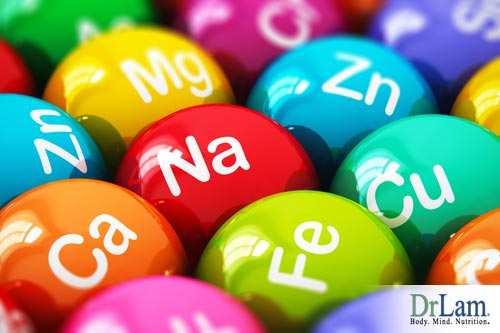 Essential nutrient elements are just that for your body – essential. Even though most of them are in your body only in very small amounts, they perform vital functions to keep your body working properly. And they all have optimum levels within which they can best help you. When these elements get out of their optimum levels, they can have adverse effects as well. One of the things that can push these nutrient elements, that are so essential, out of balance, is stress. Unfortunately, in this hurry-up world, you will experience stress, so it’s important for you to know how it affects these nutrients.
Essential nutrient elements are just that for your body – essential. Even though most of them are in your body only in very small amounts, they perform vital functions to keep your body working properly. And they all have optimum levels within which they can best help you. When these elements get out of their optimum levels, they can have adverse effects as well. One of the things that can push these nutrient elements, that are so essential, out of balance, is stress. Unfortunately, in this hurry-up world, you will experience stress, so it’s important for you to know how it affects these nutrients.
When something comes into your life that brings stress, no matter what the event is, your body responds the same way every time. The Hypothalamic-Pituitary-Adrenal (HPA) axis is set in motion. This starts a cascade of several hormones, the major one being cortisol, to fight the effects of stress on your body. The adrenal glands secrete cortisol in an effort to stop stress from tearing down your body. If the stress stops, your body returns to normal. However, much of the time, stress continues. This pushes your adrenals to continue secreting cortisol until at some point, they no longer can do so. This is the condition known as Adrenal Fatigue Syndrome (AFS). At its worst, AFS brings on a set of sometimes nonspecific symptoms that cause a great deal of discomfort. Symptoms such as:
These symptoms are more typically the end result of continuing stress that leads to the depletion of your adrenal glands, the loss of hormones, and imbalance of the essential nutrient elements.
A conventional physician’s approach is driven by patching symptoms. The holistic approach is often missing. Practitioners need to consider the interaction of your body systems and what is needed in order to fully appreciate and comprehend the body’s way of dealing with stress.
The body’s overall mechanism to reduce stress is called the NeuroEndoMetabolic (NEM) stress response from a functional medicine perspective. This is a more comprehensive way to view symptoms and to get at the root cause. For example, the NEM model considers how hormones released in response to stress affect your metabolic response and the gut system. The gut system is intricately associated with your immune response system. Essential nutrient elements are key nutrients to ensure an optimized NEM response state vital for our well-being.
Each of the nutrient elements said to be essential for your well-being work in your body in different ways. Each also has signs and symptoms of too much and too little of the nutrient. It’s important for you to know when you have an excess or a deficiency.
One of the major minerals your body needs, calcium is important in bone health, in keeping your heart pumping optimally, and in helping to release enzymes and hormones affecting all parts of your body. It helps muscles move and nerves to carry their messages throughout your body.
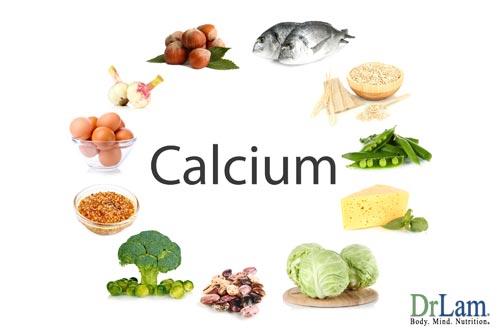 Calcium is stored in your teeth and bones, so these essential nutrient elements are readily available for your body to use. This makes it important to get a good supply, because your body will take it from the teeth and bones if necessary. This can lead to brittle bones and teeth. A large part of how calcium is stored, in the body, depends on the body’s pH. An acidic body (low pH) will tend to lose calcium as it is leached out of the bones to buffer and raise pH. An alkaline (high pH) body will tend to allow calcium to be kept in the bones.
Calcium is stored in your teeth and bones, so these essential nutrient elements are readily available for your body to use. This makes it important to get a good supply, because your body will take it from the teeth and bones if necessary. This can lead to brittle bones and teeth. A large part of how calcium is stored, in the body, depends on the body’s pH. An acidic body (low pH) will tend to lose calcium as it is leached out of the bones to buffer and raise pH. An alkaline (high pH) body will tend to allow calcium to be kept in the bones.
Signs of calcium deficiency include numbness and tingling in your fingers, convulsions, and heart rhythms that are abnormal are severe enough. Women who are past menopause may have difficulty absorbing calcium from their diet and thus require supplementation. People with lactose intolerance and vegans may not get sufficient calcium in their diet.
Too much calcium has been thought to lead to kidney stone formation in adults, also. There may be some risk of disease from high levels of calcium. Some interference in absorbing iron and zinc may be seen with high levels of calcium.
When AFS is considered, sufficient levels of calcium are necessary to offset the effect of cortisol on your bones. Estrogen dominance, too much calcium, and too little magnesium, in AFS conditions, may lead to heart problems.
One of the trace nutrient elements essential for optimum functioning of your body is chromium. Researchers differ in their opinions regarding whether chromium is actually essential for your body’s functioning.
There is evidence that chromium plays a role in controlling blood sugar and supporting healthy metabolism. It appears to help you absorb nutrients from proteins, carbohydrates, and fats you consume. This essential nutrient element may also lower cholesterol.
With continuing stress such as in AFS, the liver releases more sugar to provide energy for your body. Chromium plays a role in controlling blood glucose levels. In the case of AFS, it helps support healthy blood sugar which in turn will stabilize reactive hypoglycemia.
Some signs of too little chromium include:
What are the signs of too much chromium? There aren’t many, because chromium toxicity is rare. Your body only needs a very small amount of this essential nutrient element. Any excess is easily passed out of your body. However, if toxicity levels should be reached, the excess chromium could enter your cells and damage your DNA.
One of the trace essential nutrient elements, cobalt plays a role in helping your body use Vitamin B12 and Vitamin C. It also appears to help your body absorb iron as well as helping stabilize your cardiovascular functions.
Signs of cobalt deficiency include:
Signs of cobalt toxicity include:
In conditions of AFS, a deficiency in cobalt could increase the confusion and memory issues present. Too much cobalt would impact the problems with thyroid function commonly seen in AFS.
Another of the trace minerals considered essential nutrient elements, the amount of copper in your blood is typically regulated by the liver. It plays a part in the functioning of metabolic processes and in the enzymes that work in metabolism. Copper plays a role in producing energy for your body. It assists in the production of dopamine, epinephrine, and norepinephrine, all of which are involved in the stress response.
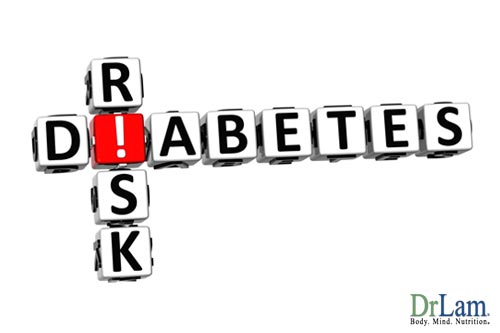 Signs of excess copper:
Signs of excess copper:
Signs of copper deficiency:
Chronic stress leads to an accumulation of copper, which then leads to more stress. Under stress, your body doesn’t detox itself well, leading to more copper building up, leading to more stress. Thus, a devastating cycle is set in motion. Also a part of this mix is estrogen. Estrogen causes a buildup of copper in your body that then leads to more stress.
Taking copper in high doses is unsafe. Copper supplements can make Wilson’s disease worse. High levels of copper can potentially lead to overstimulation of your nervous system. This could bring on mood swings, restlessness, and anxiety. Those who are in advanced stages of AFS are particularly at risk. Adrenal crashes may be triggered.

These essential nutrient elements play a variety of roles in our bodies. Iron is involved in helping transport oxygen in your body. The lack of iron is the most common nutrient deficiency in the U.S. The conversion of blood sugar to energy is also a vital function of iron. Enzymes needed in the production of hormones and neurotransmitters are helped by iron. In order for your immune system to work at its best, iron is needed. Iron plays a role in normal cognitive functioning in children.
What should you look for if you have a deficiency of iron?
Signs of too much iron include:
Iron deficiency that leads to anemia also involves a great deal of fatigue. Fatigue is also a major factor in AFS. At times, physicians may mistake the fatigue as only a symptom of iron deficiency and treat the symptom alone with iron supplementation. This often is insufficient if the root cause lies in the adrenals. Because iron is an oxidant and has metabolic stimulatory properties, its use should be carefully considered.
The mechanism of function for these essential nutrient elements isn't completely known. It appears to work in tandem with hormones, enzymes, and vitamins in your body. Its use as a mood stabilizer has been well documented, and it is used frequently for bipolar disorders. It plays a role in the way sodium moves through nerves and muscles. There is some evidence that it bolsters your immune system, also. It prevents the overproduction of prostaglandin that can suppress your immune functioning.
Too much lithium may lead to the following symptoms:
If you have too little lithium, the following symptoms may be seen:
In conditions of AFS, your immune function and neuro-affect system may need support. Adequate levels of lithium may help bolster the immune system and stabilize the mood.
Magnesium is one of the major minerals needed by your body. These essential nutrient elements plays a role in helping regulate enzymes while they do their jobs. These enzymes help the chemical reactions needed by your body to continue while preserving your body’s organs.
Signs of low magnesium:
Too much magnesium may bring the following signs and symptoms:
Under stress, magnesium is lost quickly. In the early stages of AFS, more magnesium is needed to offset this loss. However, in advanced adrenal fatigue, too much magnesium can lead to lower levels of sodium that can then result in a crash. So you may end up with a cycle of stress leading to loss of magnesium, that leads to a deficit of magnesium, that then brings on more stress.
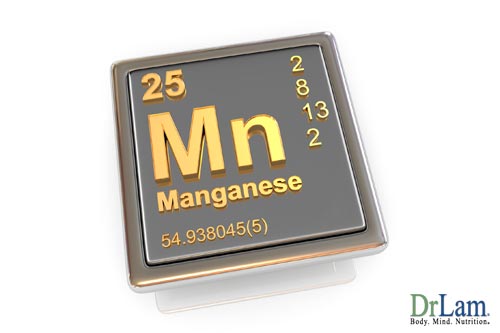
As a trace mineral, manganese are essential nutrient elements that aids in the formation of sex hormones. It also helps in metabolism, absorption of calcium, and regulation of blood sugar. Insulin synthesis and secretion are normalized by manganese. It has antioxidant properties as well and helps in monitoring free radicals in your body. Metabolism regulation is another function of manganese.
Signs of manganese deficiency include:
Signs of too much manganese include:
If you have liver problems, you may be more likely to get too much manganese since the liver gets it out of your system. If you’re anemic, your body tries to absorb manganese, making it easy to get an overdose. Manganese helps your body use iron; a deficiency of manganese will prevent you from using iron adequately.
Excessive levels of manganese can lead to a number of very serious conditions. Symptoms similar to Parkinson’s may be seen.
One of the trace minerals your body needs in very small amounts, these essential nutrient elements play a role as a catalyst for enzymes and in the breakdown of some amino acids. The enzymes molybdenum works to enable carbohydrate metabolism, detoxifying sulfites from the body, and in iron utilization. It also aids in the production of red blood cells and in metabolizing nitrogen.
If you have too little molybdenum, these symptoms may be seen:
It is very unusual to have an excess of molybdenum. If this should occur, dizziness, rashes, and tiredness would be common. You also may have anemia or low white cell count because molybdenum interferes with copper metabolism.
In conditions of AFS, low levels of molybdenum could lead to increased inflammation due to your body’s inability to detoxify yeast toxins that may build up under adrenal fatigue.
This major mineral is a common substance and works with calcium to strengthen your bones. Also involved in energy production, phosphorus aids in the production of nucleic acids and cell membranes. It also helps filter out waste in the kidneys, aids in balancing and using other vitamins and minerals, helps balance hormones naturally, boosts energy levels, and helps balance your body’s fluid levels. Phosphorus plays a part in nearly every chemical reaction in your body because it is present in almost every cell.
Signs of too little phosphorus:
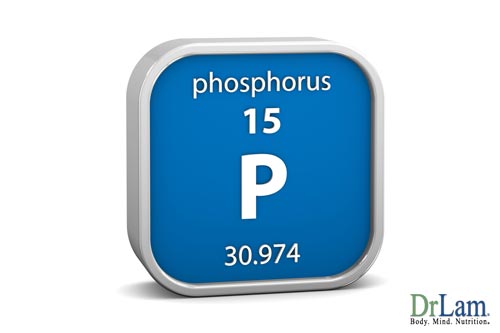 Signs of too much phosphorus:
Signs of too much phosphorus:
If you have AFS, phosphorus may be necessary for balancing hormones naturally and assisting in providing energy for your body. A deficit in phosphorus with AFS would add to the cascade of hormones that can become imbalanced.
This essential nutrient element, along with sodium, helps you maintain normal blood pressure. It helps regulate nutrients getting into your cells and preserves the alkalinity of body fluids. The metabolism of proteins and carbohydrates depend on potassium. It helps regulate calcium and phosphorus in the building of healthy bones. Potassium plays a major role in converting glucose to glycogen for storage of energy.
Signs of too much potassium:
Signs of too little potassium:
Aldosterone is a controlling hormone for sodium and thus indirectly regulates potassium because sodium and potassium are opposing nutrients. With increasing potassium levels, the adrenals secrete more aldosterone, which leads the kidneys to secrete more potassium and retain sodium. Chronically high potassium stresses the adrenals. Most with AFS already have normal or high normal potassium and low sodium level clinically though blood level may be normal.
Potassium supplements are generally not recommended.
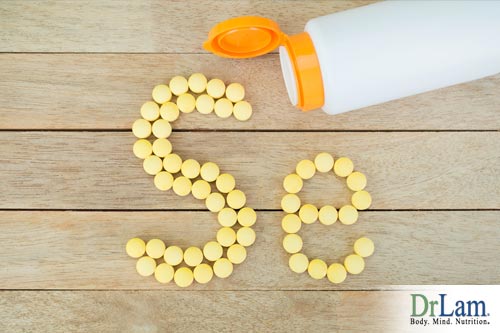
These essential nutrient elements are beneficial as an antioxidant and in increasing thyroid and adrenal functioning. It also plays a role in your immune system’s functioning. It appears to have some benefit as a way of detoxifying your body of mercury that other essential nutrient elements do not have.
Signs of too little selenium:
Signs of too much selenium:
Even mild deficits in selenium can lead to an imbalance in thyroid hormones, which may begin a cascade of imbalances in other hormones. Adrenal glands and reproductive systems can be affected by this hormonal imbalance.
Excessive Selenium can put the thyroid gland on overdrive. It is often suggested as a nutritional supplements for those with symptoms consistent with low thyroid function.
These essential nutrient elements help control blood pressure through its effect on water levels in your body. It also plays a major role in the functioning of your nerves and muscles.
Signs of too much sodium:
Signs of too little sodium:
If your ratio of sodium to potassium is greater than about 2.5:1, you may get excess aldosterone, leading to increased inflammation. If this ratio is reversed, your body won’t be able to use inflammation in a beneficial way. A low ratio indicates chronic stress with the risk of impaired immune functioning.
 Most advanced sufferers of AFS have low blood pressure and signs of low sodium though their blood level may be normal. Balancing sodium and potassium can be very tricky and needs much experience.
Most advanced sufferers of AFS have low blood pressure and signs of low sodium though their blood level may be normal. Balancing sodium and potassium can be very tricky and needs much experience.
This is a trace mineral that has few benefits for your body. It is a toxic metal, but may have some benefit in preventing bone loss in postmenopausal women with osteoporosis when used in a special form.
Signs of too much strontium:
It appears unlikely that you will have a deficiency in strontium.
Strontium can replace nutrient minerals in enzyme binding sites. If this happens, there may be thousands of enzymes that no longer work right. Many health conditions may result from this.
One of the minor trace minerals, this essential nutrient element plays a role in glucose oxidation and transport. It appears to increase the effectiveness of insulin and inhibit production of cholesterol. It aids in the chemical reactions of your body. Most of the studies on vanadium have been animal studies, so many researchers don’t know its effects on humans for sure. It may play a role in calcium metabolism.
However, too much of this mineral can have detrimental effects. Pregnant women should not take vanadium. Kidney damage is very possible with excess amounts. With its apparent insulin-like effects, excess vanadium could lead to hypoglycemia. Excess vanadium could lead to a weak immune response, chemical imbalances, body aches, and arthritis. Some studies have found high levels of vanadium in people who are manic.
In conditions of AFS, vanadium’s insulin-like properties could lead a significant imbalance in blood sugar. This would affect the functioning of the pancreas and could cause the liver to release more sugar into the bloodstream.
This essential element is the second-most common mineral in the body next to iron. It works as an anti-inflammatory agent and thus has a beneficial effect in many chronic illnesses. It aids in thyroid hormone production and improves immune response. It has antioxidant properties and fights free radicals. Zinc plays a major role in balancing hormones. About one hundred enzymes are stimulated by zinc. It is necessary in the synthesis of DNA. Zinc also plays a role in your adrenal functioning. GABA is dependent on zinc. It plays a major role in the production of aldosterone and cortisol.
Signs of too much zinc:
Signs of too little zinc:
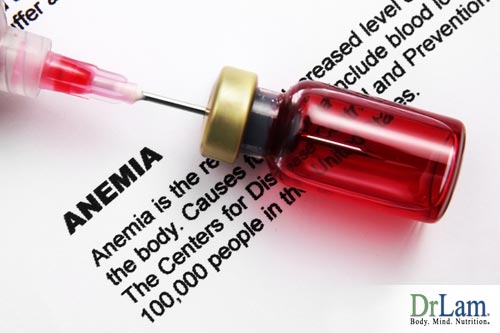 Zinc is lost quickly under stress. In conditions of AFS, zinc loss would stimulate hormone imbalance, increase the feeling of tiredness, contribute to fuzzy thinking, increase cravings for salty or sweet foods, and increase weight gain around your abdomen. Your immune system would be detrimentally affected, also. With its effect on cortisol production, low zinc would speed up the process of reaching adrenal exhaustion. Because zinc’s intrinsic property tend to be stimulatory in nature, excessive zinc supplementation is not recommended for those in advanced stages of AFS as it may trigger adrenal crashes.
Zinc is lost quickly under stress. In conditions of AFS, zinc loss would stimulate hormone imbalance, increase the feeling of tiredness, contribute to fuzzy thinking, increase cravings for salty or sweet foods, and increase weight gain around your abdomen. Your immune system would be detrimentally affected, also. With its effect on cortisol production, low zinc would speed up the process of reaching adrenal exhaustion. Because zinc’s intrinsic property tend to be stimulatory in nature, excessive zinc supplementation is not recommended for those in advanced stages of AFS as it may trigger adrenal crashes.
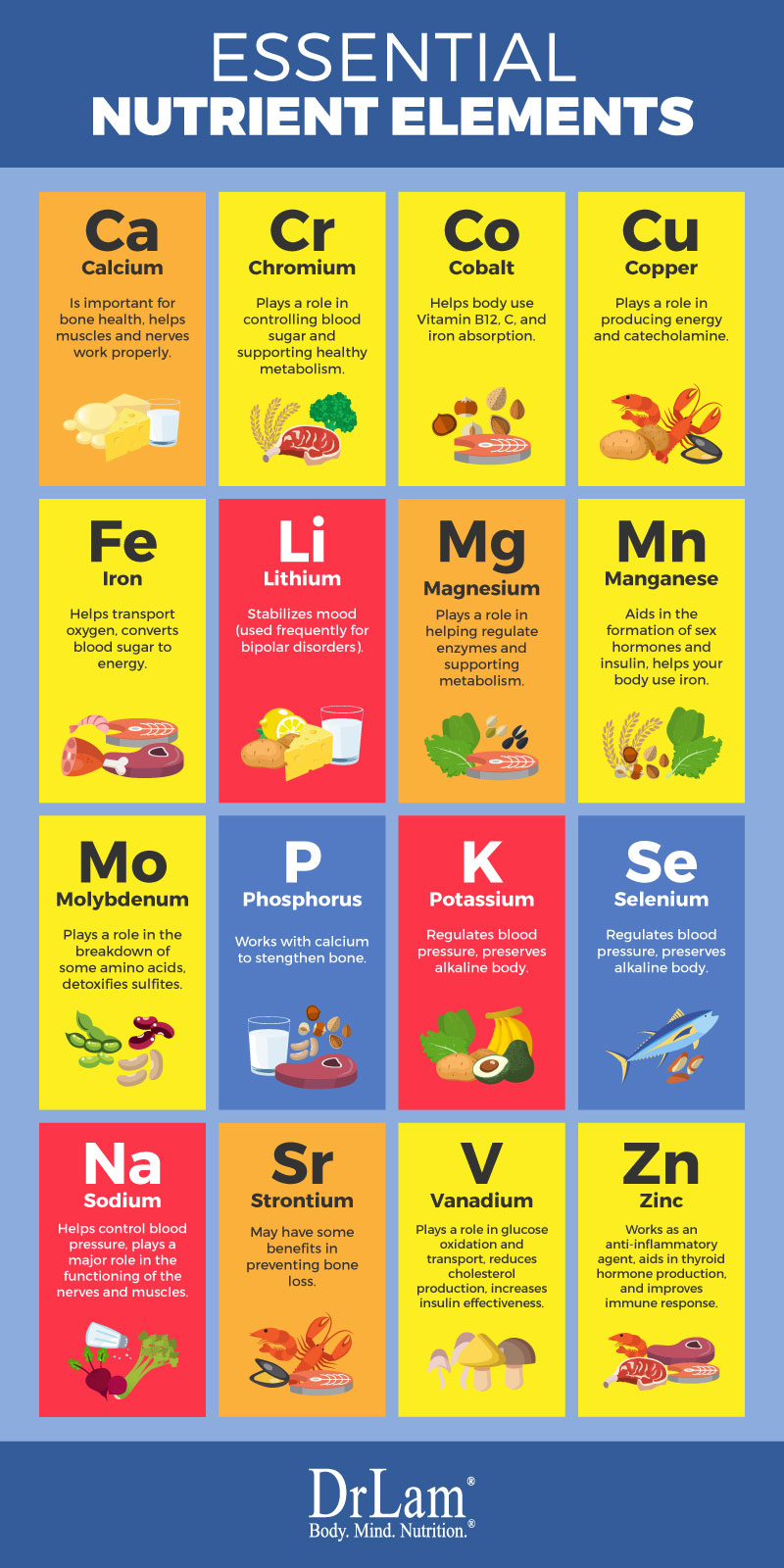
These 16 essential nutrient elements are needed for your body to function at its best. Even just trace amounts of some of them make a great difference; thus, it’s important for you to know what they are and what they do. The key comes down to balance. Both excessive or deficiency can be problematic, especially in a setting of adrenal fatigue.
Fortunately, their level can be tested by blood or urine. The key is knowing what to do with the results. Just because levels are normal does not mean a person is healthy. Similarly, levels out of range do not automatically point to supplementation. Those in advanced stages of AFS with reactive hypoglycemia, for example, may benefit from more chromium than normal. Zinc and copper may be too stimulatory for those in adrenal exhaustion. Adrenal crashes may be triggered. The desired level should be on the low end of normal, but not deficient. Selenium replacement is best. Proper evaluation of each nutritional element, in relation to the clinical state and stage of AFS, is critical. The wrong use of nutritional elements can backfire and worsen AFS. Many have experienced adrenal crashes from such an approach.
If you think you have a deficit in one or more, seek out a trained practitioner and follow his/her advice. Your body will thank you for it.